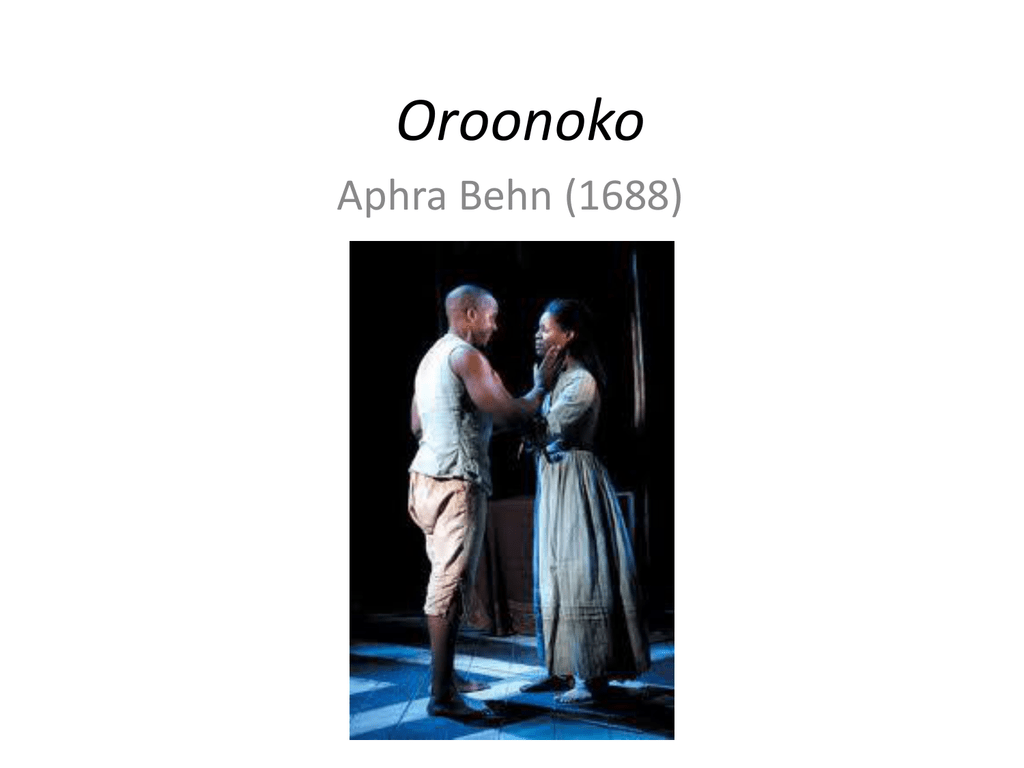
However, Behn’s use of a white narrator places her in a uniquely powerful position to craft Oronooko as a critical commentary on the exploitation of slaves, wherein she names slavery as the cause for dehumanization in the white man.īehn’s concern for the debilitation of white humanity is evidenced from the onset of Oroonoko. Behn claims the authority to tell Oroonoko’s story with a white narrator, but simultaneously taints that authorial whiteness with a female’s voice, thus rendering it a conflicting report. The significance of these virtues is in their establishment by a white, female narrator. As discussed in class, Oroonoko represents many allegorical virtues that earn him distinction from his own race, of which three are most closely paralleled in contrast with the failings of the white man: honor, purity, and courage.

Rather, the character Oroonoko is the vehicle with which Aphra Behn exposes the Englishman’s failings to uphold the very values he uses to exemplify and rationalize his superiority over other races-chiefly: Christianity, morality, and civility. Oroonoko is an anti-slavery text, but it is not a text arguing for the liberation of slaves.


 0 kommentar(er)
0 kommentar(er)
